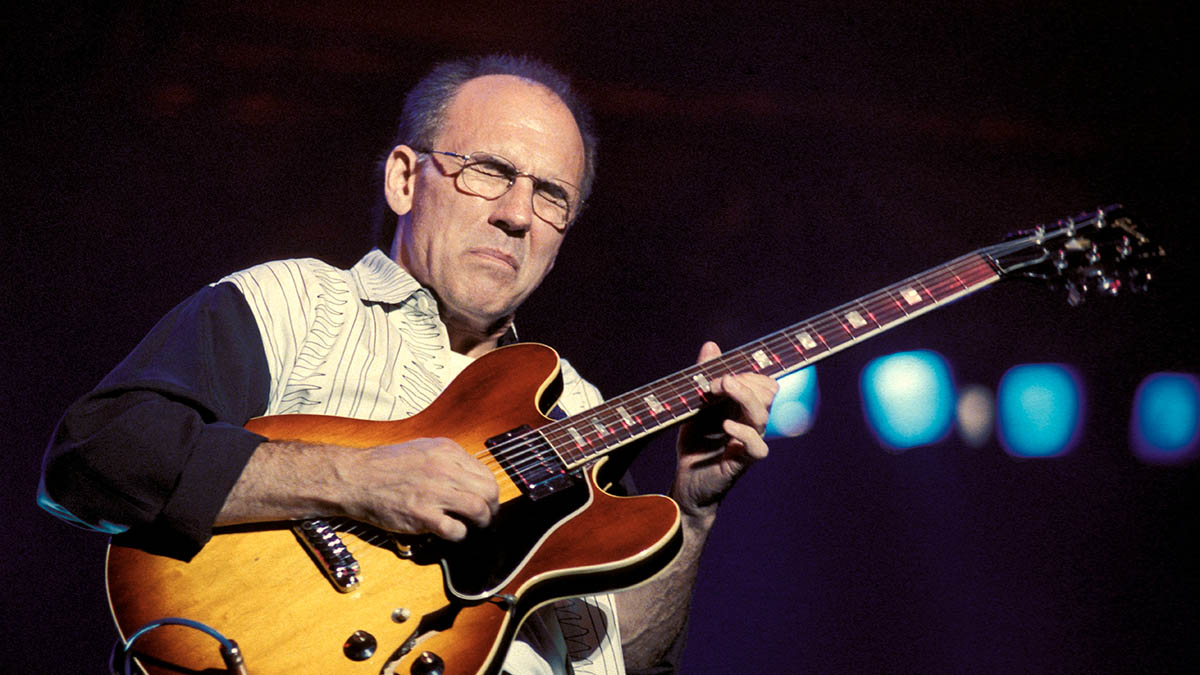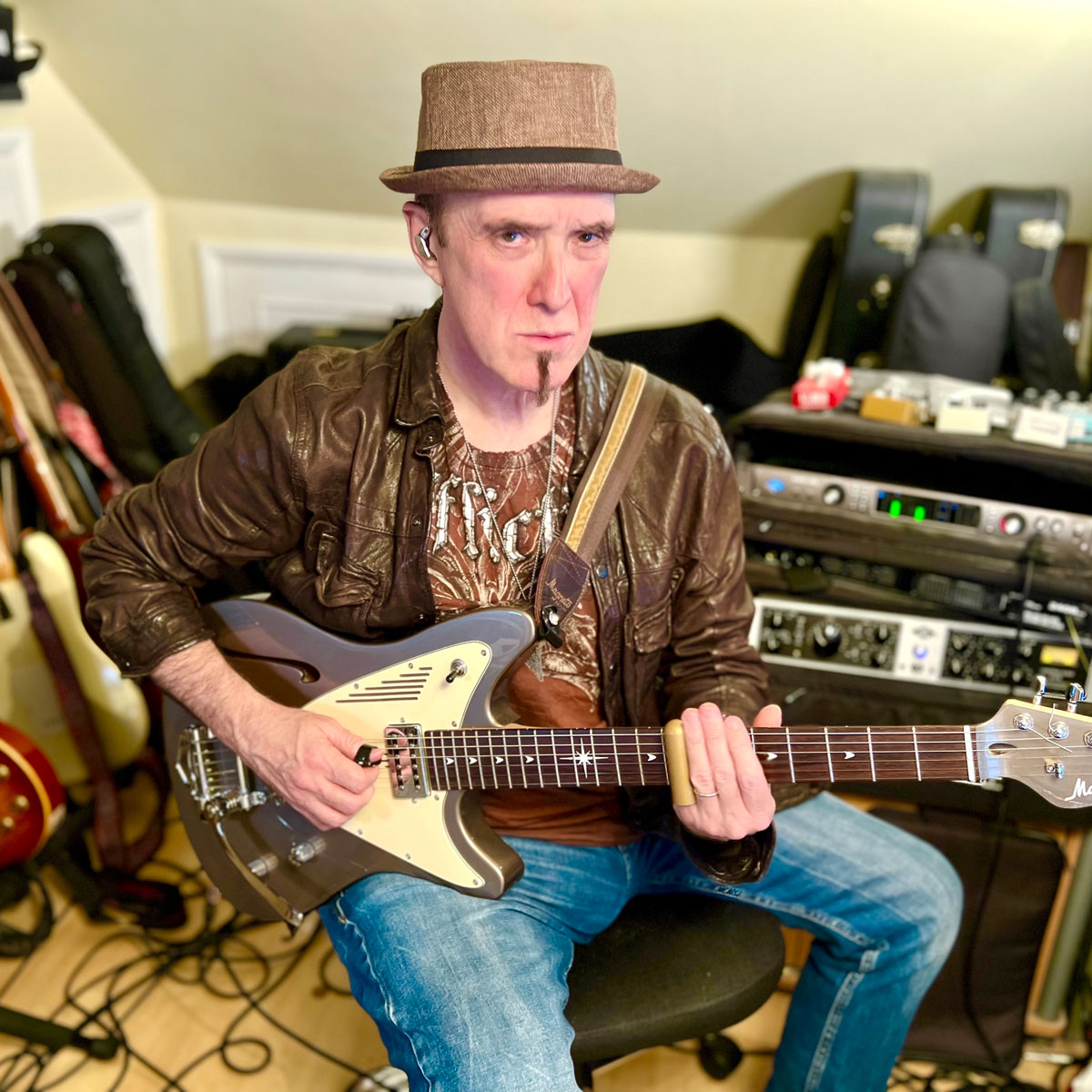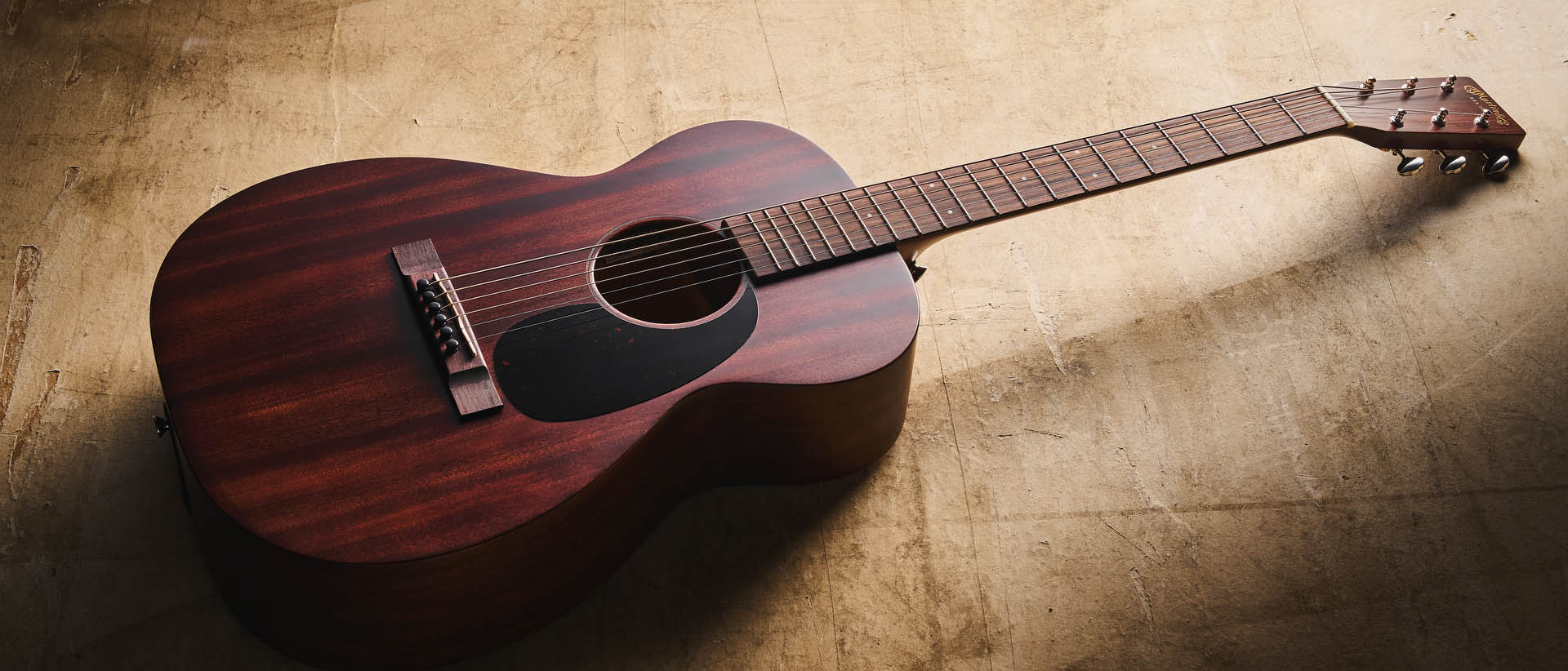How to weave the Mixolydian mode into your jazz and blues solos
A lesson in Larry Carlton-inspired G7 jazz-blues-rock action that will expand your lick vocabulary and open up all new soloing ideas

The Mixolydian mode is a great scale to use over an unaltered Dominant 7th chord. Unaltered means a chord without altered extensions, such as flat or sharp 9ths, sharp 11ths, and sharp 5ths. Have you ever noticed how, when trying to shoehorn the Blues scale in over a Dominant 7 chord (in something other than a blues) that it clashes with the chord? The Mixolydian may well offer the solution.
G Mixolydian is the 5th mode of C Major. You may ask ‘why do I not just play C Major over the G7 chord?’. The answer lies in the use (or rather avoidance) of the 4th degree over a Dominant 7th. The 4th is an ‘avoid’ note on a Dominant 7th; you can pass through that note but holding it for too long is a displeasing sound.
Here we start by showing the scale and examining some common practice patterns – ascending 3rds and triads. These patterns give you a deeper command of the scale by finding intervallic shapes within it. These shapes can be developed to generate more interesting lines.
Some of these patterns are finger twisters – you may need to try a few different fingerings before you settle on the one that suits you best. The licks that I’ve written here are designed to flow up and down the neck in a more natural way than simply exploiting repeated patterns.
Studying the way that great players find musical shapes within a scale, will explode the possibilities of your playing. When you come across a great lick by one of your favourite players, make note of it. You could even record a video of yourself playing it into your phone. You’ll find that the licks you work out for yourself normally stick in your memory for much longer than ones that you learn from a book.
The licks here are intended to show how you can step beyond mechanical patterns to actually make music. Note that in the first example, I’m exploiting the use of the interval of a 3rd within the scale.
You’ll see that in a few places I slide into the Major 3rd. First I slide into it from the 2nd, but in Example 5, I decided to slip out of the scale to have a bluesy Minor 3rd for a fraction of a second – which is just the sort of thing the great Larry Carlton will do.
All the latest guitar news, interviews, lessons, reviews, deals and more, direct to your inbox!
Get the tone
Amp settings: Gain 7, Bass 7, Middle 4, Treble 5, Reverb 4
Larry Carlton is one of a rare breed of players who uses Dumble amplifiers. Many Dumbles are designed to be super-duper Fender-style guitar amps and so a classic American sound is best. But no fear if you’re a lover of the British sound: any clean amp just on the verge of break-up, with a smooth drive added in front, and a nice warm reverb will put you right in the ball park.
Example 1. Mixolydian in ascending 3rds
Our first example shows the G Mixolydian mode and then goes through a pattern of ascending 3rds – don’t change the direction of the pattern!
Example 2. Ascending triads
Here’s G Mixolydian in ascending triads. Note that the triads ascend on the way up the scale and on the way down – this can prove harder than changing direction.
Example 3. Using chord tones
This idea starts with the first five notes of the scale and then outlines the G7 chord, while bar 2 kicks off in 3rd intervals – the use of chord tones states the G7 tonality.
Example 4. Minor pentatonics
We begin with a country-ish bend from the 3rd to the 4th, and, as with Example 3, the 6th is also stressed to underline the Larry Carlton vibe.
Example 5. Superimposing
Here is a brief Fmaj7 arpeggio over the G7 for tension. Larry, Wes and many bebop players use this device, before resolving into G7 chord tone terrain.
Example 6. Approaching chord tones from a semitone below
Here we target the b7 (F) by bending up from the 6th (E). At the end of the lick we approach the Major 3rd with a Minor 3rd grace note.
A professional guitarist for many years, Andy G Jones has played with Van Morrison, James Ingram, Lamont Dozier, Queen (Brian May and Roger Taylor), Robben Ford, Billy Cobham, John Illsley (Dire Straits), KT Tunstall, Albert Lee (featured on Andy's upcoming CD), Mike Finnigan, Dave Landreth and Ryan Voth from The Bros. Landreth, Malford Milligan, The BBC Radio Big Band, Patti Austin, Hamish Stuart (Average White Band), Lalo Schifrin (Hollywood film composer Bullitt, Mission Impossible), Hank Marvin, James Dean Bradfield (the Manic Street Preachers), Grady Tate, Agnetha from ABBA, Cliff Richard, Dudley Moore, Nathan James (Inglorious), Joey Tempest (Europe) and Kelsey Grammar.

